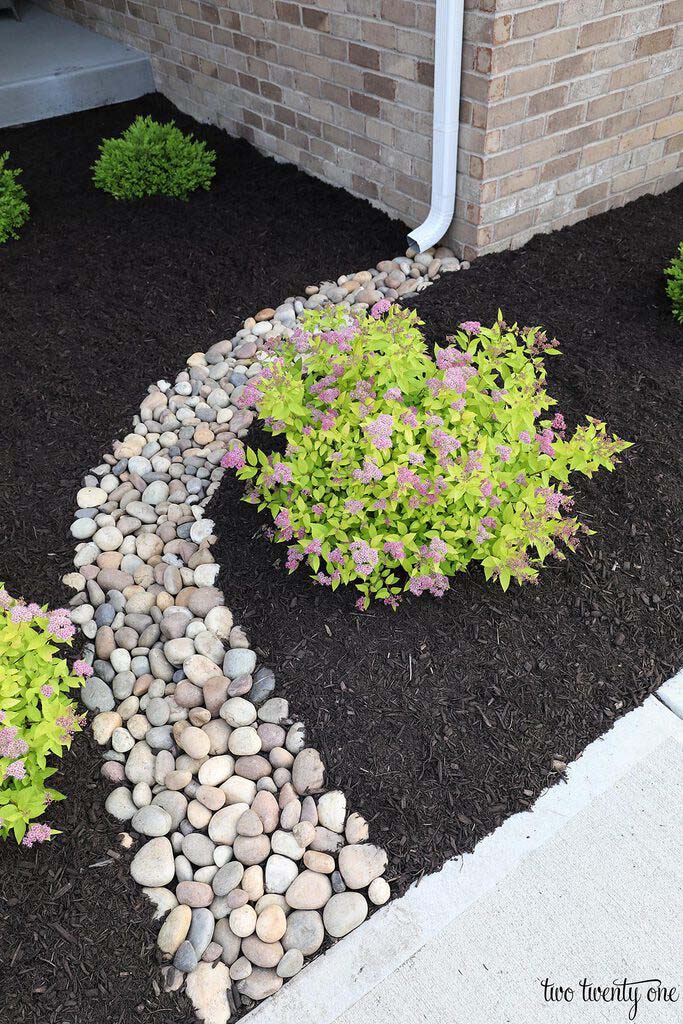
The easiest way to start cleaning out the grass in your yard is at the edge of your home. Your downspout can create a problem with water pooling near your foundation. Add river rocks to redirect the rain runoff.
Mulch is another excellent way to decorate your landscape without grass. If you like black mulch, try rubber mulch. It won’t fade the way dyed mulch will. This dark brown wood mulch makes the flowers on the spirea plant pop.
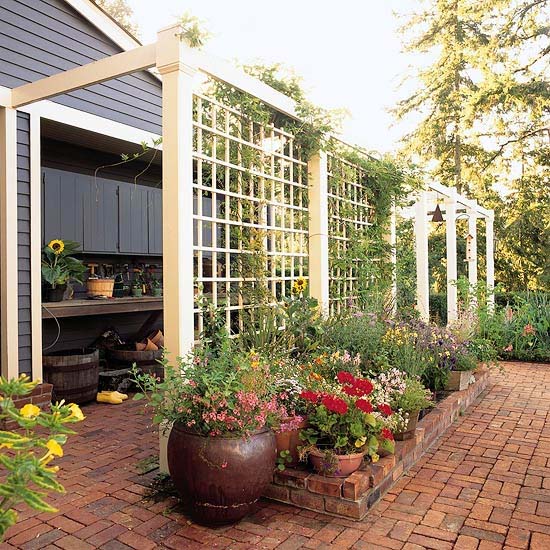
This patio, made from red brick, shows how great your backyard space can look without real or artificial grass.
The trellis creates a private gardening workspace for tools, soil, and fertilizer. For lots of color and convenience, a raised brick garden bed uses potted plants to create a layered garden.
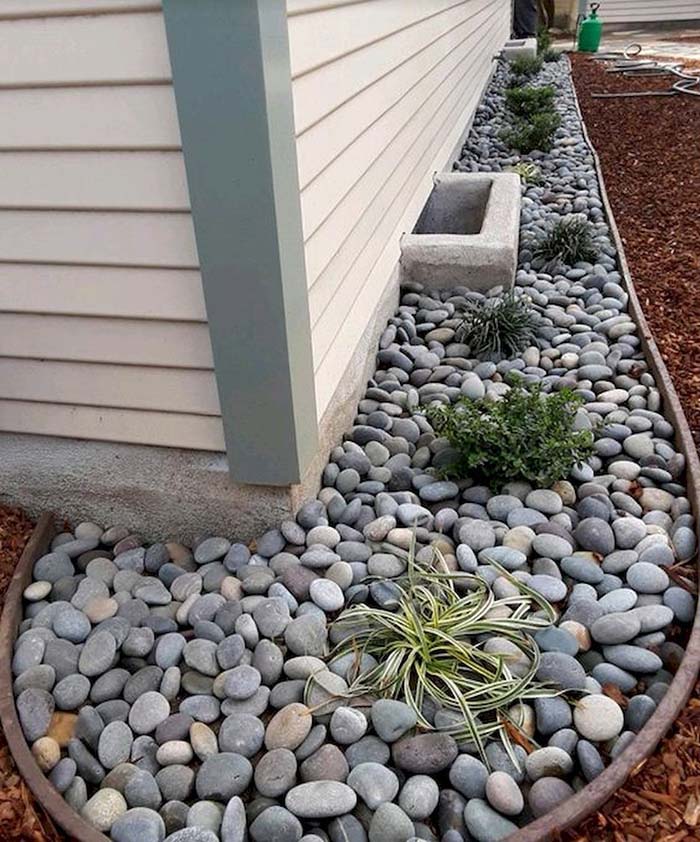
Rock gardens are one of the most popular cheap no grass backyard ideas.
This home shows a combination of designs using river rocks and wood mulch. Using this combo eliminates grass between the home and the walkway.
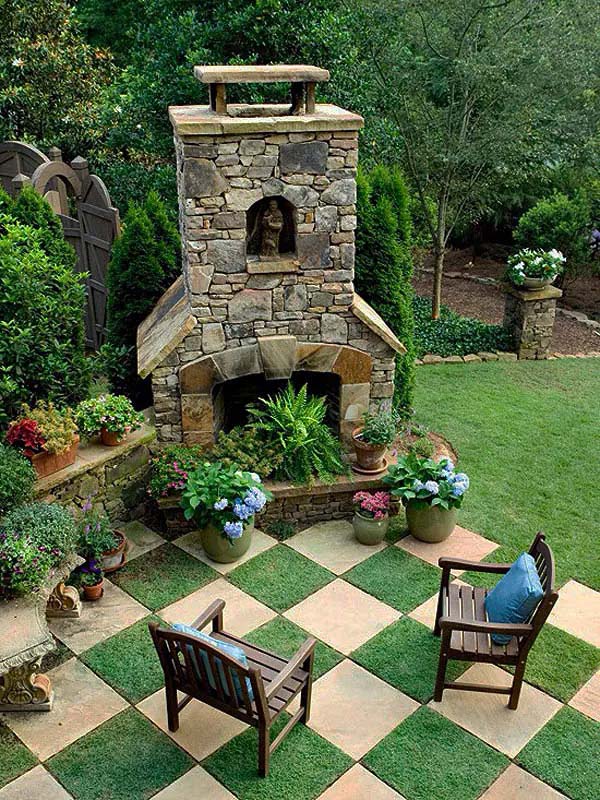
Two common means of eliminating a live grass lawn are the use of patio pavers and the use of artificial turf. Here we see them being used brilliantly to create an outdoor setting that mimics interior design.
This home decor design is a standout among popular small backyard ideas.
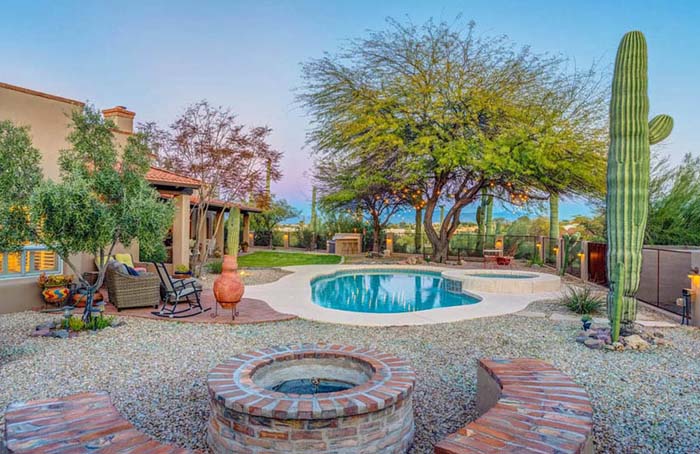
Gravel is an easy way to eliminate the need for grass in your backyard. Here, take a look at the way it rolls around the pool and fire pit.
This is a good solution if you live in a dry area like southern California and are researching backyard landscaping ideas that include drought-tolerant plants.
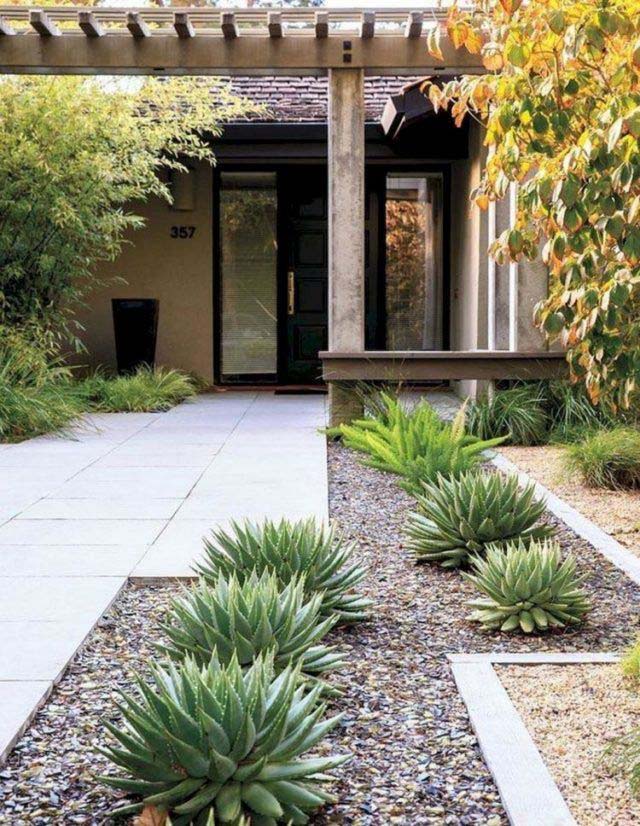
Use patio pavers or stamped concrete to create the right angles common to a modern space like this. The small divider mimics the pavers on the walkway.
Decomposed granite and glass were used in the plant bed. California native plants, such as the Aloe polypylla pictured, add texture and color.
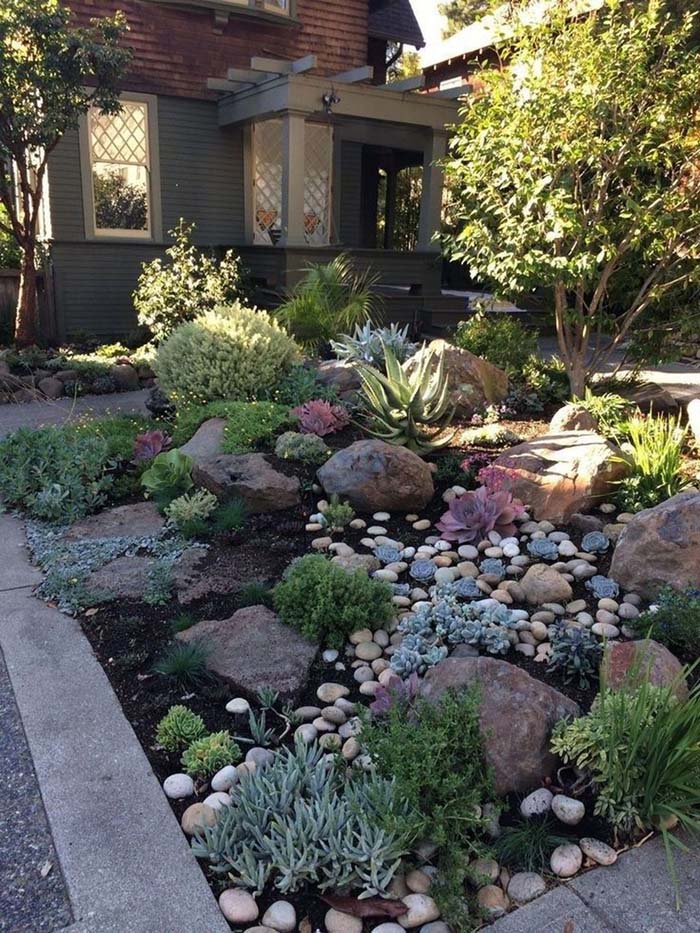
This rock garden does a great job of imitating a pond. Large rocks create texture and visual interest.
River rocks are dotted along the ground, imitating lily pads. Soft mosses and grasses bring this hardscape to life.
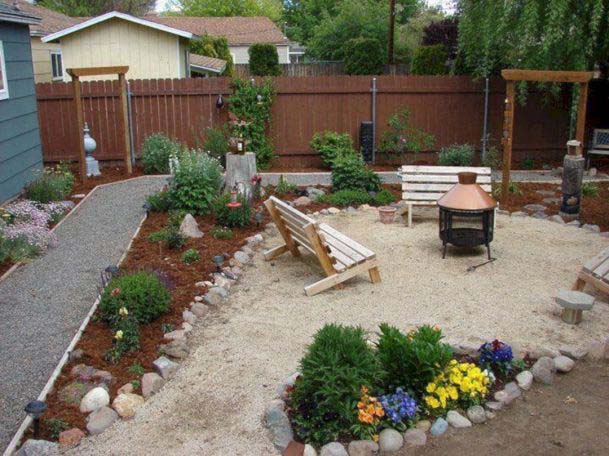
There are several things going on in this backyard. The walkway was created using small pebbles.
An edged entrance to the fire pit area uses larger rocks to define the space. Wood mulch covers the garden beds, keeping weeds and unwanted growth at bay.
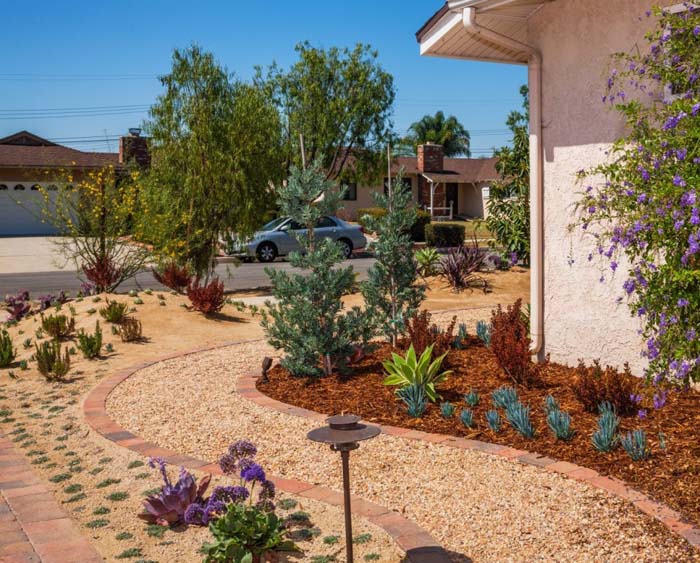
Homes in dry climates would do well to avoid grass altogether. We can see color added to the use of ground cover and drought-tolerant plants in this small sloped yard.
The landscaping takes advantage of the slope by creating a winding dry river bed that acts as the path around the home.
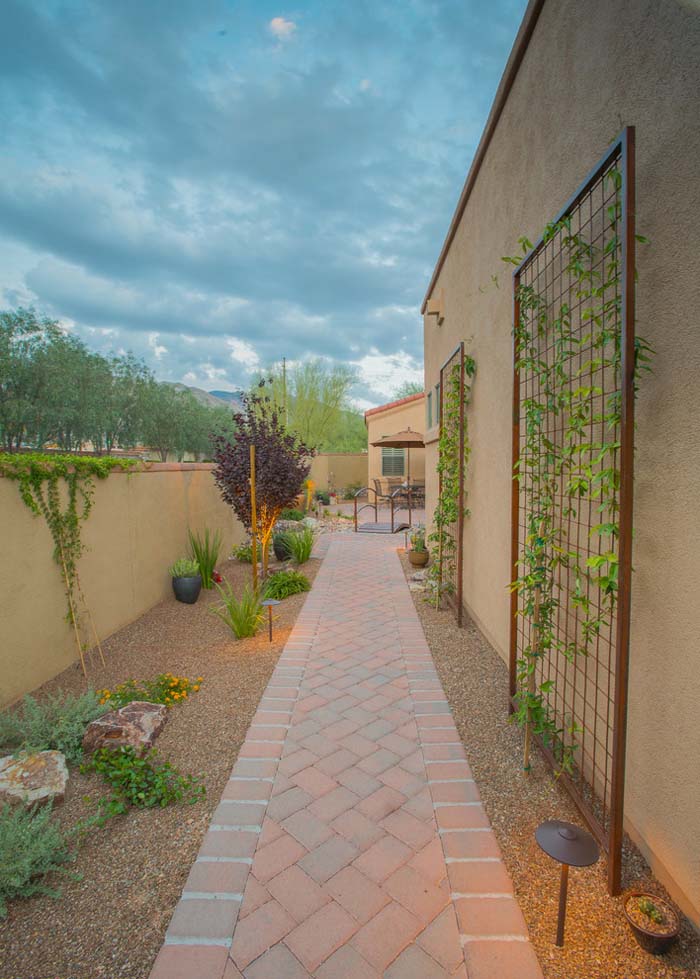
A long, narrow side yard of this Tucson home becomes an interesting walkway. The brick’s basket weave pattern avoids making the narrow path feel claustrophobic.
The trellises on the side add color and texture without adding maintenance. Crushed gravel is set on both sides of the path.
The side of this home connects seamlessly with the courtyard in the back, bringing cohesiveness to the outdoor landscape.
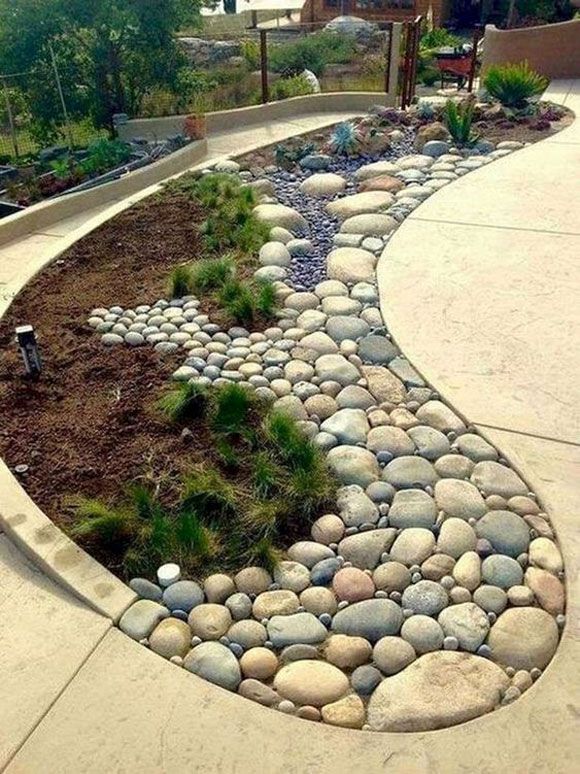
An undulating yard gets a makeover. The walkway was formed using stamped concrete and retaining walls.
Colorful, smooth river rocks and mulch join forces to fill in the kidney shaped spaces raised garden beds. Long blade grasses need little trimming throughout the year.
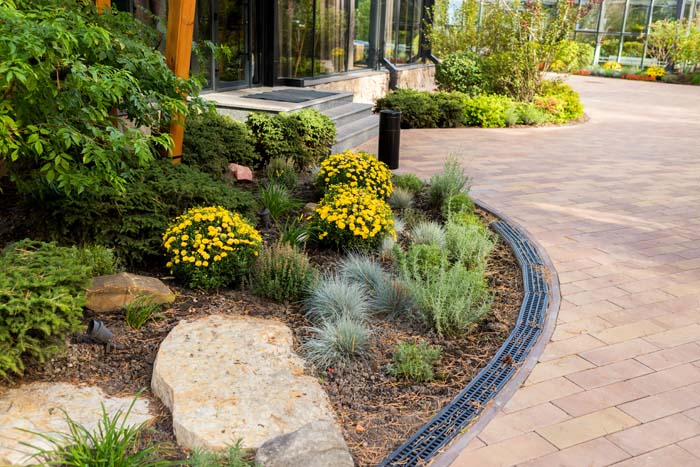
Because they already feel at home, native plants will easily thrive in any garden.
Extend the garden away from the home and add colorful plants that may grow wild in your neighborhood. This idea works whether you live in England, Guatemala, or North Carolina.
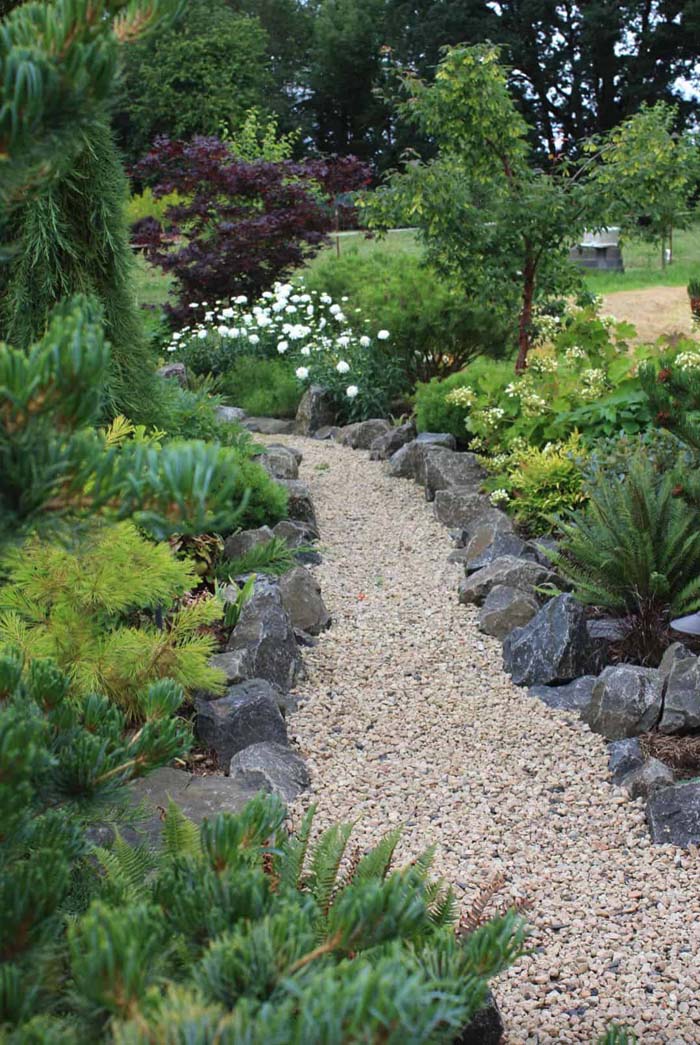
You could add a path that mimics a dry riverbed. Pea gravel is used here. The river’s edge is set with large black rocks.
The area near a living, running river is called the riparian zone. It’s reimagined here using low maintenance foliage.
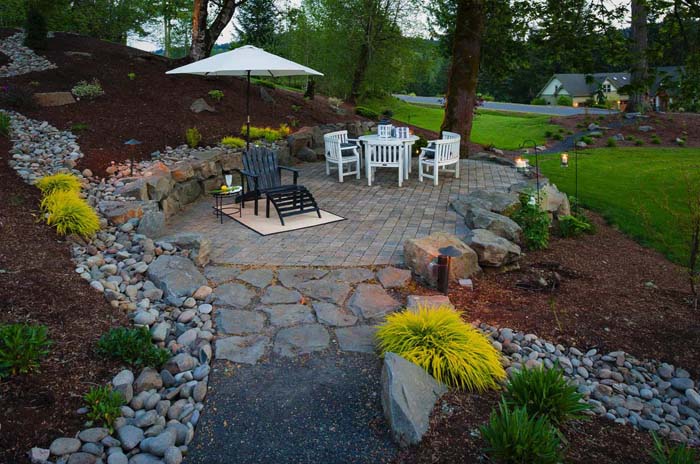
The homeowners took advantage of the retaining wall used to hold back erosion from the slope in their yard.
They put in a large patio area which is used for entertaining and as another seating area in their backyard.
A French drain is set around alongside covered with river rocks. A few ornamental plants add color without increasing maintenance.
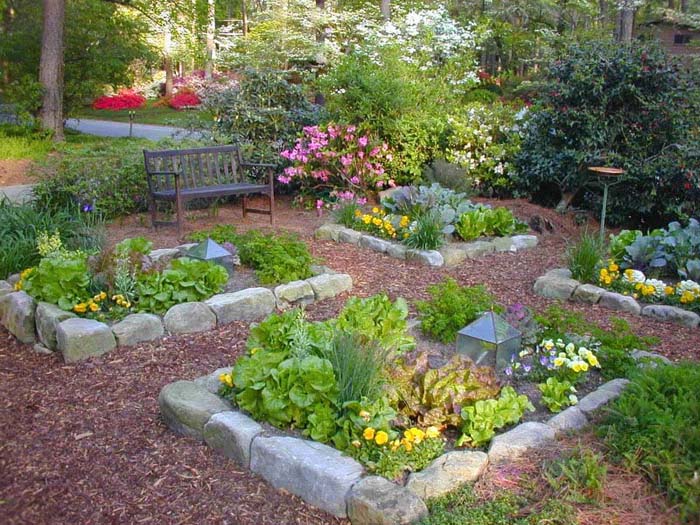
While many people only plant a single garden bed in their backyard, if you’re looking to eliminate grass, set up several garden beds.
Raised garden beds add color without the need for natural grass. Include a vegetable garden or two and cut down on your grocery bill. Use mulch in between as the path.
Dropping cardboard underneath the mulch is an effective means for preventing weed growth.
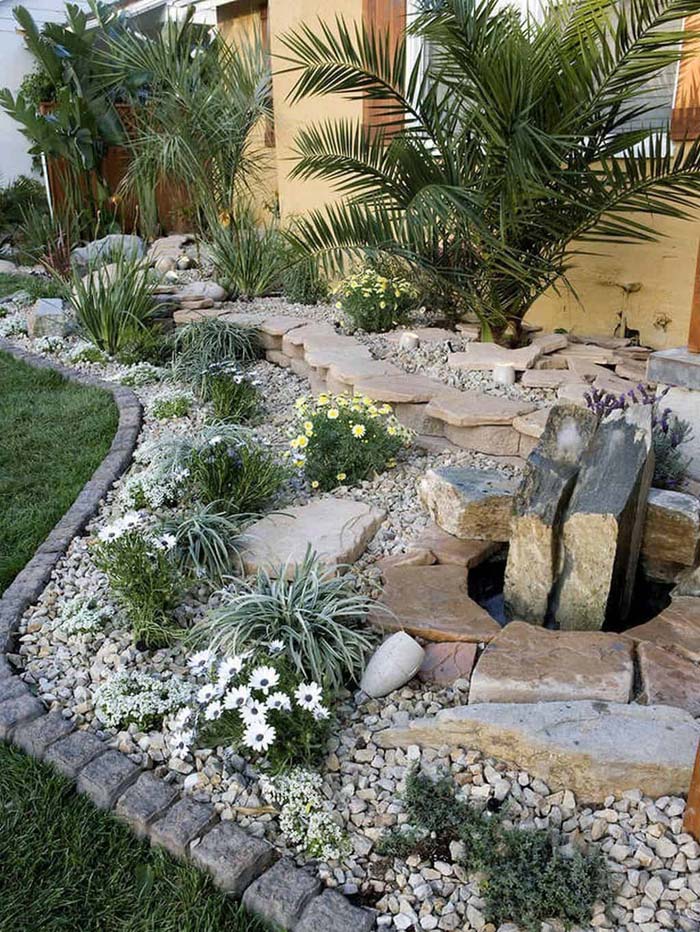
Rock gardens don’t have to be all about crushed stone. Take this example of a raised rock garden bed with a lower level edged in gray pavers. The water fountain’s materials hold the garden’s natural look.
Flagstone pavers used as edging create the look of a natural looking path. Palm trees and ornamental grasses add color.
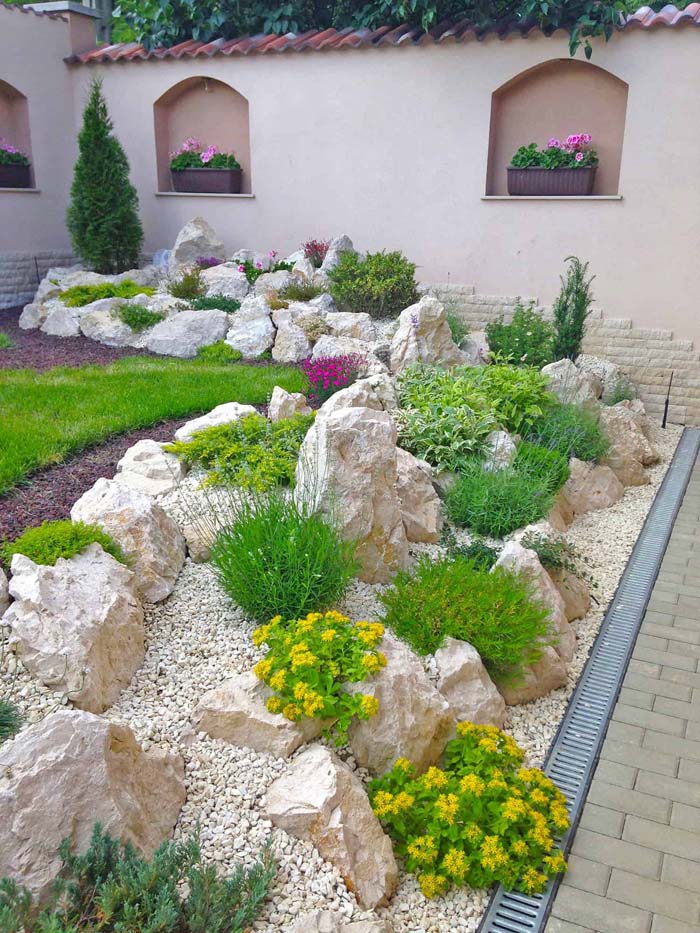
Here’s a garden that’s all about directing water and drainage. The stamped concrete driveway has a drain runoff on the edge.
The white rocks and dry river bed help direct rain into the gutter. Native plants dot in and out of the rocks. It has a more suburban feel by using all white rocks.
Edging the garden with mulch prevents lawn mower blades from using gravel as projectiles.
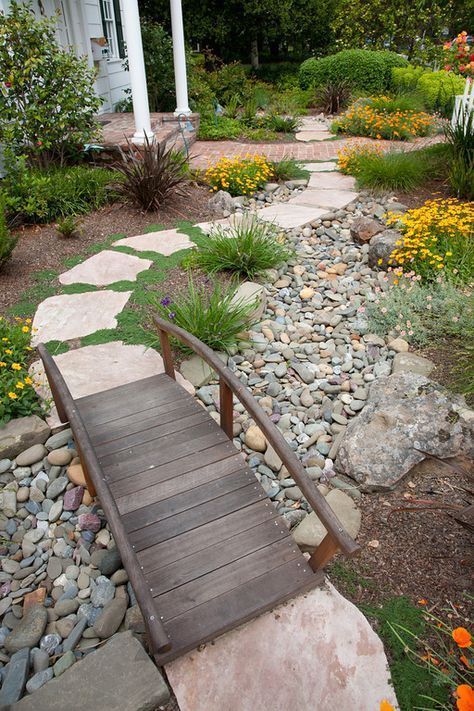
Flagstone pavers are used as stepping stones that crisscross a dry river bed.
The grass that grows in-between the steps is easily cut back using a weed wacker.
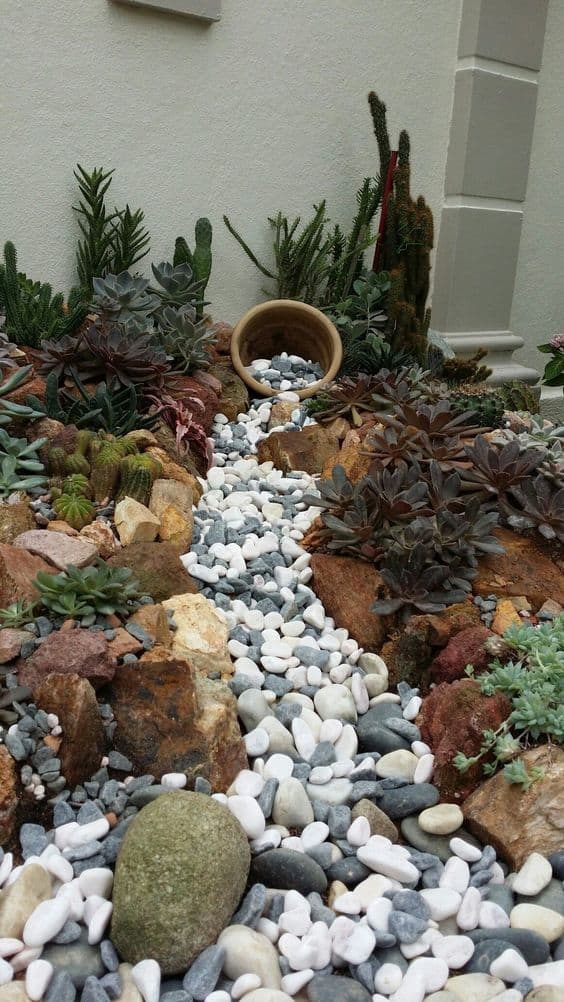
When you have a lawn with a slope, try a layered rock garden with cacti or native plants set in-between larger rocks.
A dry river bed works as a rain runoff, forcing water away from the foundation of the home.
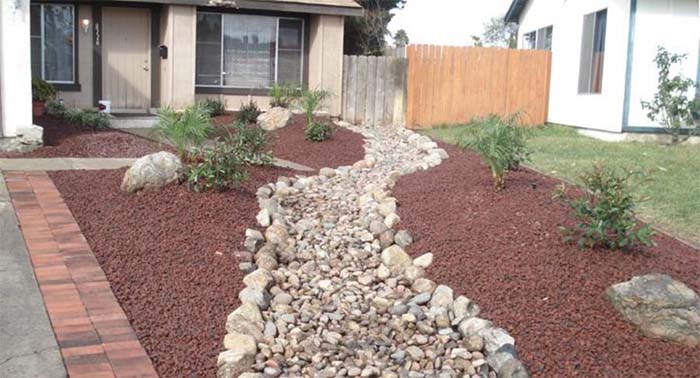
A dry river bed is an easy way to create a secondary path to an entrance leading to the backyard.
Your options for surrounding it include rubber mulch, wood mulch, or even small pebbles. It keeps people on the path and is very easy to maintain.
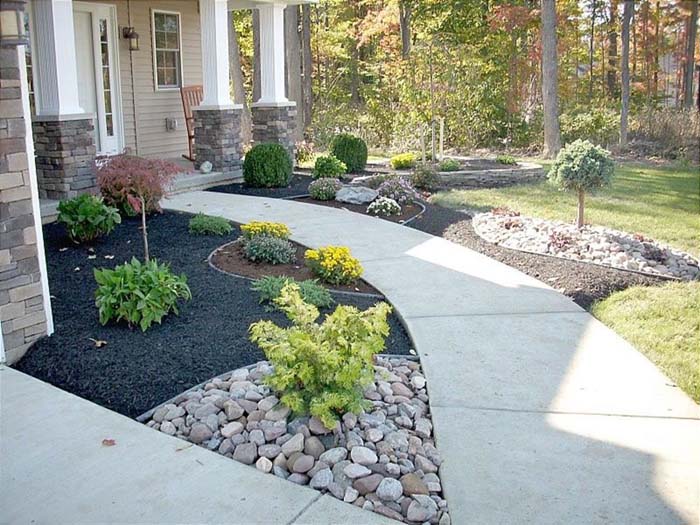
The awkward space between the walk and garage is easily solved when using rocks, mulch,and small shrubs. It’s mirrored on the other side of the walkway.
Stamped concrete is the easiest way to get a curve in a large walk up to the porch.
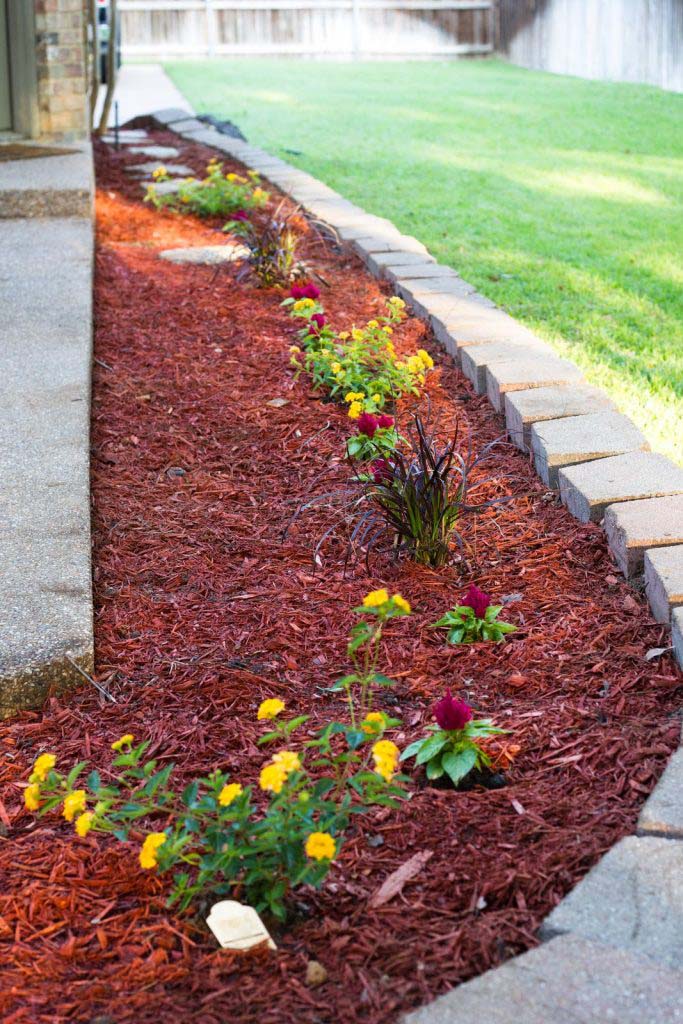
Adding mulch to the side doesn’t have to be level with the grass. Raise the garden bed using precast brick. Add mulch to the garden and some low maintenance flowers.